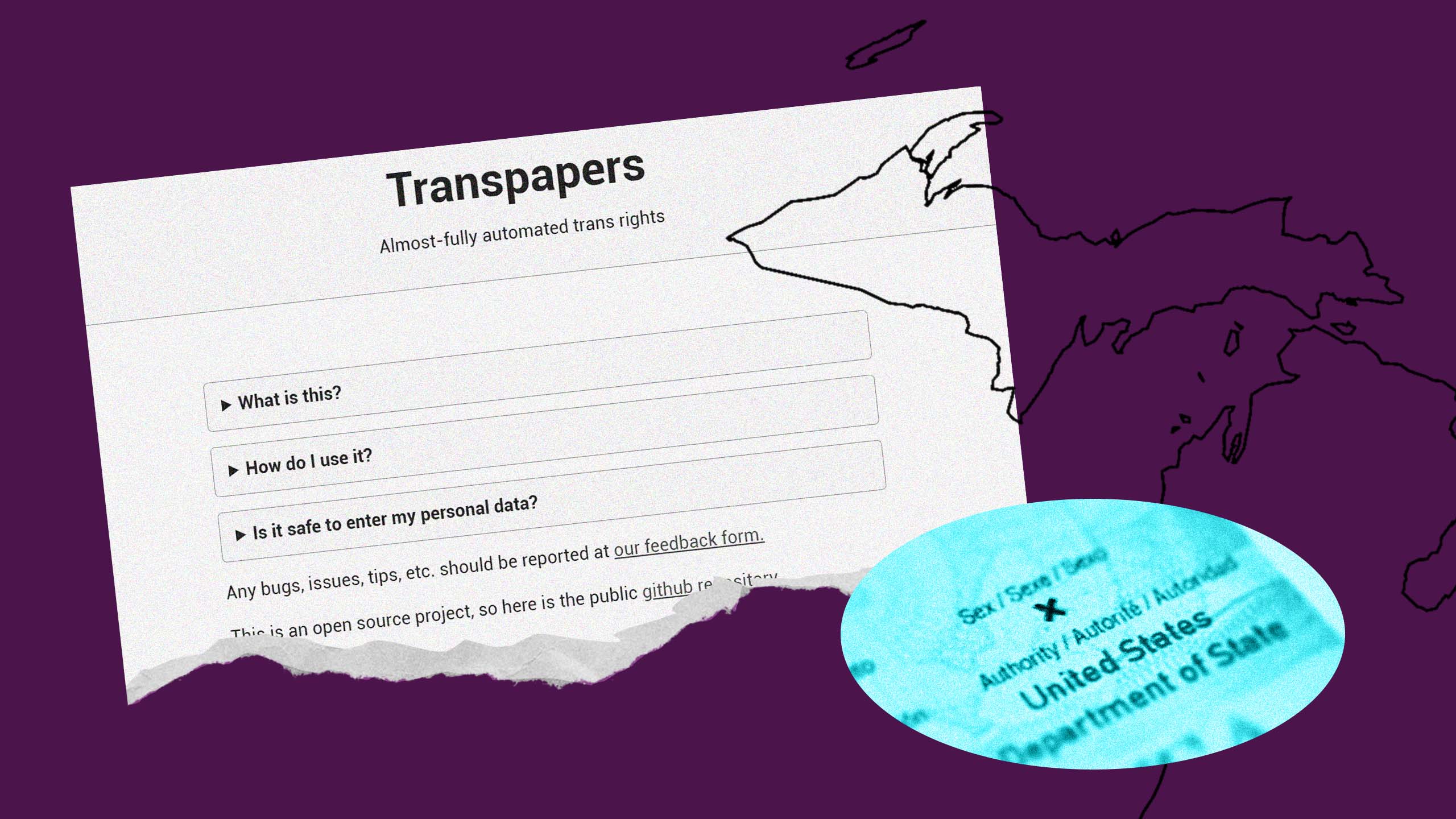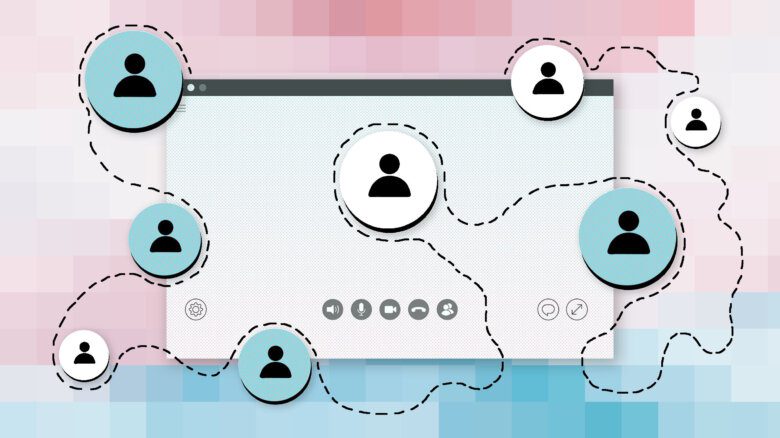“Almost fully automated trans rights,” Transpapers announces when you visit their website. Transpapers is a new resource created by two trans women in Michigan to help guide trans people through the process of changing their legal name and gender marker on their legal documents. Users enter their information into the fields, then the site generates the necessary legal documents and a personalized guide on how to file them. It is a critical service, given that a 2021 study from UCLA estimated that nearly 500,000 trans adults in the U.S. don’t have any identification with the correct gender marker. Currently the website only works for Michigan residents, but the creators are working on adding more states. The ultimate goal is to expand coverage to every state.
“I was amazed at the accuracy of the documents and instructions,” Audra, who prefers to go by first name only, tells Xtra by email. Audra is a Black trans woman who learned about Transpapers from the Great Lakes Bay Pride’s resource directory. She says the name change documents the service generated for her were accepted, and plans to use it again to change her birth certificate, social security card and driver’s licence. She is excited to move forward with the process, saying the system has worked out “effortlessly” so far.
The idea for the project started with co-creator Stephanie Beckon, who works as a quality engineer, last year, when she was working on her own name-change documents. “I found the process to be lengthy, obtuse and generally unpleasant. I had difficulty figuring out how to fill out certain forms and needed outside help from someone who had experience with the process,” Beckon says. She wrote a detailed guide based on her experience, relying on her engineering background to refine the guide to be as simple, clear and accessible as possible, but it was only useful for people living in the same county as her. She reached out to her co-creator Sasha Lišková, a freelance web developer she knew. “Sasha and I were already friends at this time, and I knew she had worked on other programming projects, so I brought up trying to expand [that] guide and it turned into this,” she says.
Lišková and Beckon are working on adding Rhode Island next, since it is the smallest state with the fewest counties. They say data collection is one of the biggest barriers to expanding coverage. It’s not just just state-level differences—individual counties can have different requirements as well, Beckon tells us. People interested in helping can submit information using the link to a feedback form or visit the Github repository to look at the code directly.
“I do want to stress that people do not need programming knowledge in order to be able to help us. Just sending tips with information for their locale is definitely helping,” Beckon says. The guide for Kent County, Michigan, for example, includes directions all the way to the correct counter in the county courthouse, something she could include because she had been there herself. The same is true for Saginaw County, after a local Pride organization sent in the information.
Lišková told us that user information is as secure as she can make it. Transpapers is run client-side on the user’s computer, meaning no data is ever sent over the internet. “You could turn your internet off and run this and it would work,” she says. According to Lišková, data leaks happen when hackers gain access to a server where information is stored.
“The way that I ultimately ended up getting around that was, well, you can’t hack the server if there’s no server to hack,” Lišková explains. By writing the program to run on the user’s computer, she made it effectively impossible to steal the personal information people enter on the site. Not even Lišková herself gets access to user information. The creators also took the extra step of hosting the site on the .lgbt domain, which is registered with Identity Digital. That means sites using common phishing strategies, like replacing an English character with nearly identical Cyrillic character, are reported and taken down automatically. Websites on the .lgbt domain also cannot be “harmful, threatening, abusive, harassing, defamatory or hateful with respect to the LGBT community,” adding a further layer of legal protections.
Ximón Kittok, executive director of the Grand Rapids Trans Foundation (GRTF), served in an advisory role as Lišková and Beckon created Transpapers. Through their Update! program, which provides one-on-one guidance for trans people changing their name or gender markers on legal documents, GRTF has helped nearly 200 trans people over the last three years. They know the process “inside and out,” Kittok says. Kittok decided to help with Transpapers in part because they know not everyone has access to the kind of assistance the GRTF offers.
“The need for clear guidance around this process is so vital. And there are a lot of counties that don’t have an organization like the Grand Rapids Trans Foundation—or even an LGBT centre—to help them navigate this process,” Kittok says.
When it comes to accurate IDs for trans people, “Michigan is in a dire place. Seventy-eight percent of transgender Michiganders lack accurate identification,” they explain, referencing the UCLA study.
“The process of even attempting a name change was proving arduous. I couldn’t find clear instructions to save my life,” says Audra. “Transpapers definitely made me a lot more confident about handling my legal business. It is an excellent resource and needs to be the first thing a trans individual should consider.”
For now, Transpapers can only create documents for people living in Michigan. Lišková says their “pie-in-the-sky vision of the future” is to get county-level information from users and Pride organizations across the country, then add that to Transpapers until it covers every state.


 Why you can trust Xtra
Why you can trust Xtra


